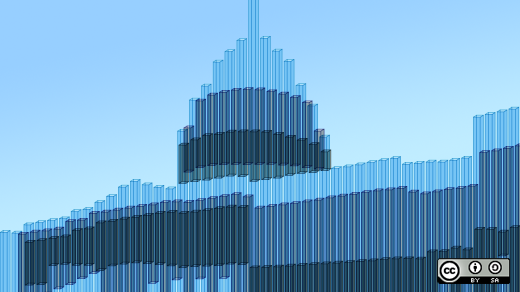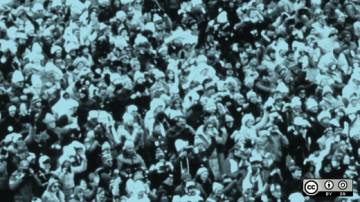Many sobering lessons from history emphasize democracy is not a finished product. The Roman Empire ended in a dictatorship, while the feudal Middle Ages delivered the Magna Carta and the Renaissance; despite the American Revolution, slavery continued for many years, while the French Revolution resulted in the restoration of the monarchy. That said, more people are living in democracies around the world today than at any time before, and living standards in democracies continue to improve.
Democracy has been around for a very long time—since the people of Athens met on The Pnyx as early as 507 BC. However, it has not existed as long as autocratic regimes have.
It would be dangerous to oversimplify the parallels between these political approaches and the relationship between open source and closed source software. Even so, it is worth examining the impact and challenges for democracy in the context of ongoing debates about the role of open source, especially in enterprise IT environments.
Democracy, particularly in the open source sense, is better than the autocratic, closed source model of software deployment. For closed source software vendors, a profit motive can ultimately be more influential than an interest in improving the software. More often than not, when deciding whether to invest in product innovation, commercial vendors will ask themselves at least one of these questions:
- If we do this, what percentage of customers will we gain?
- If we don't do this, what percentage of customers will we lose?
Neither of these questions put the customer's needs foremost in mind.
Comparing the challenges of open source and democracy
When you consider the evolution of democracy, it is easy to see that it has not always run smoothly. It can be hard to predict the electorate's response; problems can get stuck while different sides argue over ideal solutions; and more importantly, long-term projects that demand action beyond the cycle of one elected government can falter when power changes hands.
Similarly, open source software relies on volunteers and committed contributors who do not always agree. It does not follow a set structure or product roadmap, and disagreements can lead to forks in the code. None of these things make open source attractive to enterprise IT environments, which need reliability, predictability, and security. Indeed, perhaps somewhat ironically, closed source software's somewhat autocratic style may give organizations the reassurance of being told when updates are happening and what they can do within the constraints of their licensing agreements.
And yet open source software is thriving in the enterprise. Why is that? We all know that autocratic governments have ultimately been bad for societies. Yes, they can control resources and focus them on specific projects, such as being the first nation to go into space. But the most successful countries allow a greater degree of collaboration, freedom, and interaction between citizens. This has resulted in visible social and economic advancement for economies that embrace democracy. The perception problem for democracy—particularly when you look at the challenges facing established democracies today—is its messiness.
Embracing the 'messiness' of open source
When you draw parallels from this to the use of open source in the enterprise, there is little appetite for such messiness. Messiness creates risk, so businesses have understandably been cautious about open source.
Today, though, we are reaching an inflection point where the perceived "messiness" of open source is overcome by its potential. Businesses and public sector organizations are operating in digitally enabled environments where consumers get much closer to brands. This is forcing companies to engage and be more collaborative with their customers. It requires a greater degree of agility to respond to customers now as their demands change dramatically in the current economic climate.
As in a democracy, the most important advantage open source offers is that it can empower those closest to a problem to create a solution. The rise of containerized applications brings this into even sharper focus because individuals can rapidly spin up instances of applications without requiring an in-depth understanding of the complexities of enterprise software.
This dynamism of open source allows organizations to respond rapidly at a time when the goalposts are continually shifting and companies need to be nimble to adjust their IT strategies—without incurring huge costs. Similar to democracy, the fluidity of open source also ensures more people can be engaged, thereby expanding the talent pool. By reducing the barriers to exploring open source code, organizations can become confident that they are using technologies that have a strong and expanding following.
The internet has changed the way enterprises and individual customers consume technology, especially software. It has powered a generation of IaaS, PaaS, and SaaS technologies. It has also broken down the barriers between developers and individual users to adjust the code in real-time to meet changing demands.
Enterprise users fully appreciate this change and are adjusting their strategies accordingly; they are adopting open source because it offers far greater flexibility and agility. Therefore, organizations need to embrace the value of such software, because it can address a wide variety of use cases without compromising the traditional values of commercial enterprise software: reliability, security, and scalability.
CIOs should remember that adopting open source will require a culture shift within their organizations. It will disrupt established business processes and demand new skills of the IT team. While this may not sound appetizing, it has the potential to lead to new opportunities as it encourages greater collaboration between teams and external partners.








2 Comments